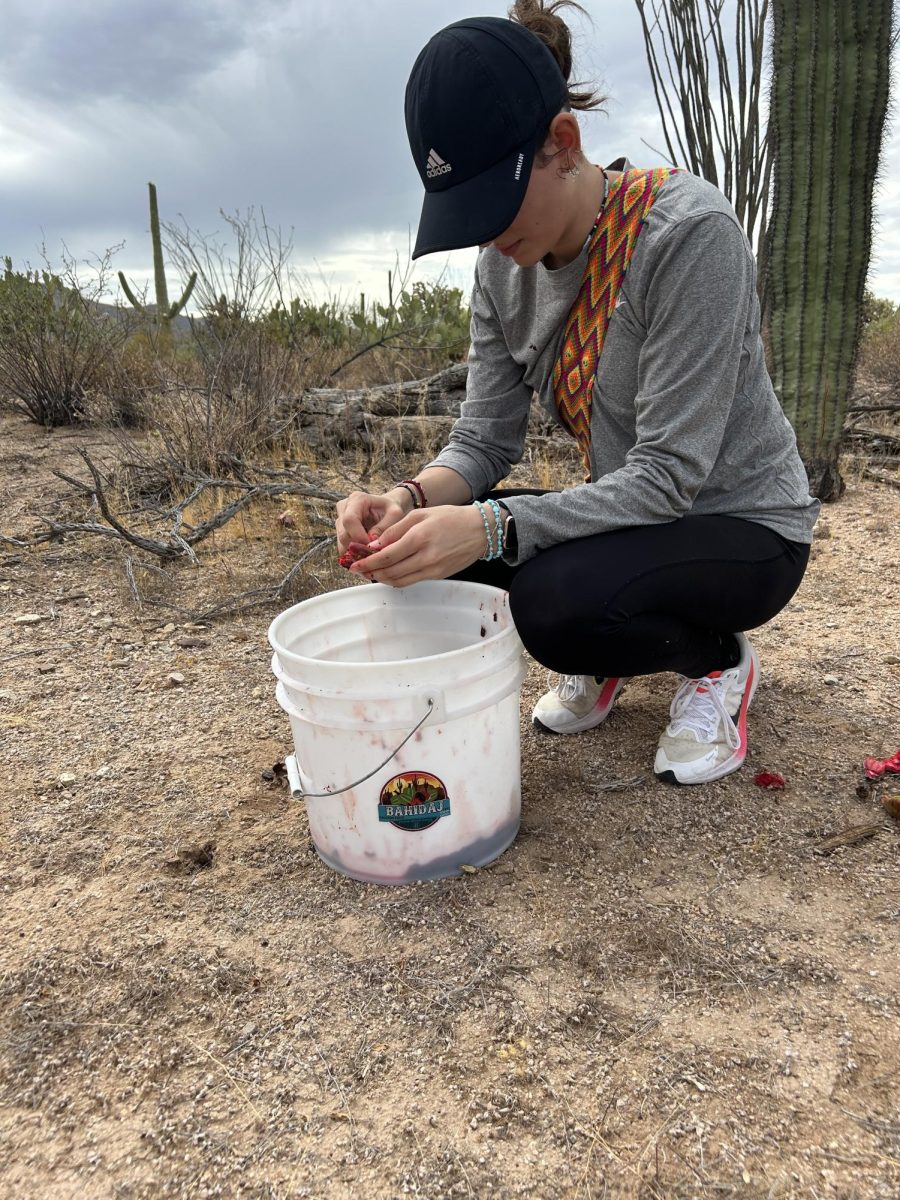The ultimate goal in a stray animal’s life is to gain a forever home. For students, who are most likely nowhere near their “forever home,” why is it necessary to convince an animal they have found theirs? The Humane Society of Southern Arizona’s Foster Care Program has a number of volunteer opportunities that can provide you with a temporary foster pet. Those puppy licks and cat cuddle sessions can exist in college.
“To hear that UA students are considering foster care opportunities says so much of their willingness to benefit the community,” said Aaron Fisher, volunteer coordinator for the Humane Society of Southern Arizona.
For people who want to make a difference in an animal’s life but are currently in a temporary living situation, foster care is a perfect opportunity.
“Even if you can’t give it a forever home, by fostering, you are making it more adoptable,” Fisher said. “They may be a part of our life, but we are their life.”
Some believe they may get too attached and struggle to give the animal back to the shelter after bonding with the animal they foster. For those who want to adopt their fostered pet, the HSSA has “Foster-Adopting,” which is necessary in some cases; though, the primary job for a foster parent is to give the animals what it needs to become adoptable.
“It’s never not going to be hard to impact an animal’s life,” said Kim Roberts, the foster care coordinator at HSSA, “but by making yourself available to other animals, you are continuing to make a difference.”
By keeping up with your past foster pets, HSSA will tell you if the animal was successfully adopted.
Foster care is also financially beneficial to students because all costs, such as food, litter and veterinarian visits, are taken care of by HSSA, since the shelter technically owns the animal.
The possibilities are endless when it comes to foster care. There are animals that need to be fostered because they are too underweight or underage to be adopted out. Some fosters can be in litters, as you can foster a mom along with her litter of kittens.
There are also animals that just need socialization. A home where the animal is given a new atmosphere can help issues it may have, such as behavioral issues and separation anxiety. Medical cases also occur in some fosters. An animal may need to be treated for a disease or illness; by monitoring and medicating them, you can benefit their health for life.
With the help of the foster care volunteers, animals have gone from forlorn to transformed completely. In 2014, volunteers dedicated 150,000 hours, Fisher said, which is equivalent to 75 full-time employees. Fisher added that there are currently 1,700 volunteers, 900 of whom are active.
Volunteering with HSSA is a great way to earn volunteer hours because they involve the furriest of friends. One benefit to volunteering with HSSA is that the hours can also be used in redemption for adoption fee credit. For example, each volunteer fostering is given five hours per day. These hours add up and also can work as a credit process: When a volunteer has successfully gained 500 hours, they may use those hours in redemption to cover the adoption fee of an animal.
In order to become a volunteer at HSSA, one must attend a volunteer orientation program, fill out an application and pay a $15 fee. The $15 fee helps defray the expense that costs the shelter to house many animals.
Cristina Francois, an entomology graduate student, said her foster pet, Kacey, a pit bull mix, is currently her favorite hangout buddy. Kacey had been at HSSA for nearly six months and needed a break from the kennel, so Francois is currently fostering him.
“I’ve heard that she is the best first-time dog, because she is already house broken and well-trained on the leash,” Francois said.
Many foster pets like Kacey come from a previous home that gave them up and rehomed them at HSSA. Francois, however, has given Kacey a chance to become home oriented again, preparing her for her future home.
“I think fostering is incredibly optimal for students, because you can choose when you can have an animal and when you can opt out for a while, such as for the holidays,” Francois said. “It can also help determine your future plans for pet ownership and strategize a little.”
Since some may not know exactly what type of pet suits their lifestyle, it may be a good idea to test the waters with foster care before making a lifetime commitment.
“Everybody loves how there are puppies to cuddle on campus during finals,” Francois said, “but this gives you an opportunity to cuddle puppies 24/7.”
For more information on Foster Care and volunteer opportunities, visit hssaz.org/get-involved/volunteer/foster or contact the Humane Society of Southern Arizona at (520) 327-6088.
_______________
Follow Victoria Teplitz on Twitter.









